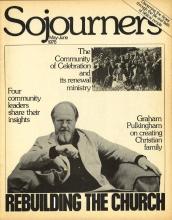“In such critical moments, our church knows instinctively its priestly and prophetic role,” said a south Korean church official to a visiting U.S. church delegation last month.
Those words were spoken even as south Korean authorities were detaining 27 Korean priests and prophets for “attempting to overthrow” the government of President Park Chung Hee. The charges stem from a “Declaration for Democratic National Salvation,” which Christians presented March 1 following a worship service in Seoul’s Myongdong Cathedral.
The declaration states that, despite heavy ordeals, the Korean people have never lost their hope for and belief in freedom, liberal democracy, and dignity.
Yet, “once again our people are bound by the iron chains of a dictatorial government,” said the dozen signers. They called for 1) abolition of Park’s “emergency measures” and restoration of free speech and press, 2) separation of the three branches of government (now totally controlled by the president), including free elections and the recovery of parliamentary politics, 3) sound economic development which would benefit all the people and not just a few rich, and 4) a peaceful, democratic revolution which they say is not only “the way to defeat communism” but also a shortcut to reunification of the tragically divided Korean peninsula.
The Seoul District prosecutor has formally indicted 18 Christians for their roles in the democratic declaration. 11 of those indicted have been imprisoned since March 10. They include four Protestant pastors, three Catholic priests, three Christian professors and south Korea’s most famous Catholic layman, Kim Dae Jung.
Read the Full Article

